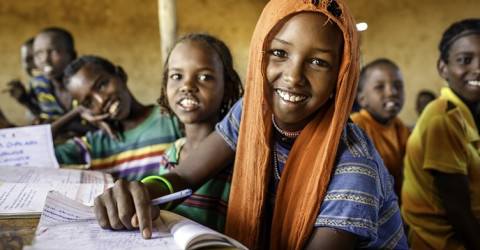
GCED Basic Search Form
Quick Search
أنت هنا
الأخبار

Civil society organizations from across the world convened in Paris earlier this month to agree on a common advocacy approach for G7 countries that would reduce global inequalities through health and education.
The meeting formed part of the G7 Civil Society Summit, also known as the C7, where civil society organizations from the G7 member countries promote recommendations by non-State actors on far-reaching themes such as health, security and social cohesion.
Speaking at the 3 July meeting, Chief for UNESCO section for Health and Education, Christopher Castle, addressed the development challenges in health and education.
“Tackling inequalities in education and health requires a concerted push to support the health, education and other sectors to work together to deliver a learner-centred approach. Ensuring that girls and young women are not left behind means removing all barriers to their right to education, including, for example, the provision of water and sanitation facilities, private safe latrines, and the commodities required for them to manage their menstruation in a healthy way,” Mr Castle said.
Participating in the first roundtable discussion at the C7 event (held from 1 – 3 July), and in response to a question moderated by a journalist from France24, Mr. Castle pointed to the data concerning continued high HIV infection rates disproportionately affecting girls and young women, and of the urgency for schools to provide good quality comprehensive sexuality education.
“UNESCO and others are responding to a growing call from countries who are intensifying their efforts to reduce early and unintended pregnancies, and high levels of HIV, by supporting the delivery of sexuality education starting at an early age.” He added, “Countries understand that failure to address early and untended pregnancy, child marriage, HIV and school violence and bullying threatens the achievement not only of the sustainable development goal on education, but the other goals as well.”
During the French G7 Presidency, the C7 was spearheaded by Coordination SUD. Its work focuses on combating equality in gender equality, climate and the environment, education, health, food security, agriculture and nutrition, peace and security, development finance and tax justice.
URL:
https://en.unesco.org/news/putting-health-and-education-agenda-g7
